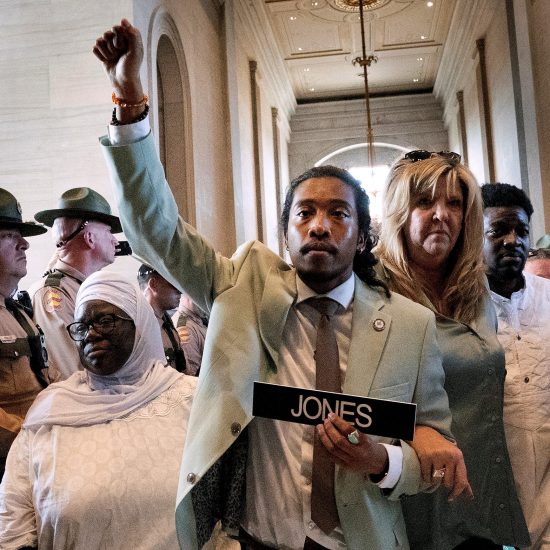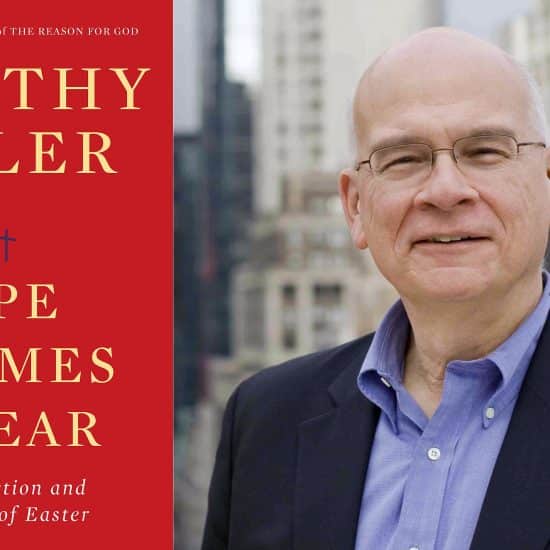For the faithful, it was the worst of times, then it was the best of times.
For the disciples and other faithful followers, the days leading up to the crucifixion of Christ were horrific. Most, if not all, had witnessed Roman crucifixions before. As cruel as these killings were, they had become commonplace.

Bill Webb
|
Some would say this form of punishment helped to keep the peace for occupied Roman territories, even cities like Jerusalem. The Romans were especially on the lookout for troublemakers, political and militant. A rugged cross “tamed” would-be offenders by eliminating them.
Jesus appeared to have convinced his followers that he was the Messiah, and any good Jew knew that the Messiah was invincible, literally made immune by God to the possibility of death. How else could he drive out the occupiers and return Israel to its religious, cultural and militaristic supremacy?
Jesus had stirred up local crowds before. Once a mob pushed him to the edge of cliff with plans to push him to his death only to have him walk away safely, literally parting the mob as he continued his travels and ministry. That would suggest Jesus would be untouchable.
However, what Christ experienced in Jerusalem reminded his followers that Jesus, the Son of God, was voluntarily vulnerable to the same kinds of torture — hellacious mistreatment — as any other person. Surely the faithful felt that any moment on the walk to Golgotha, Jesus would show his true stuff as the invincible Messiah. It would have been a grand stage for the vindication of the faithful for Jesus to martial legions of angels and the forces of nature and set straight an evil and crooked world.
The reconciliation approach hadn’t been in the Jewish playbook — only payback, revenge and reparation. And for all the fine teaching and his thrilling words, time was running out. For most, it all seemed to end when his breathing stopped and his bloody corpse was hastily prepared and sealed up in a foolproof tomb. To the Romans and to many among the religious leadership and followship, the proof was in the tomb.
The fake had been exposed as just another Messiah wannabe. They had seen such before. Jesus must have seemed like an unfulfilled dream to his followers on what we later would call Good Friday. What a difference a couple of days makes in God’s economy.
It is amazing that those following Christ, whose first impulse was to hide or flee when he died, became convinced otherwise in the days ahead. They became courageous. Instead of fleeing Jerusalem, they responded to Christ’s orders to stay put there.
Things began to change for the good. The message of resurrection and the witness of Christ-followers living like their Savior and Rabbi instilled hope, courage and faithfulness. Indeed, the one who had raised others from the dead and himself be resurrected by his Father in heaven.
One of the most remarkable things about these early believers might not have been that they were fearless or that they could perform miracles but that they demonstrated an understanding of Jesus’ teachings and demonstrated an understanding of what it meant to live out those teachings, even the fulfillment of the Old Testament law of Moses. The law was old but the walk was new. Jesus himself called it “the way.”
Believers were gathering regularly to worship. Some were convinced Jesus’ second coming was not far away. In a land where most people did well to have work for the day and, subsequently, enough income for a meal by evening, they organized the model for modern-day church potlucks. Hungry people were being fed under the auspices of the church.
Such generosity was funded in part by property owners who were compelled to sell whatever land and structures they had and generously shared the proceeds with the less fortunate. We gather from reading about those days that outsiders — even foreign visitors — were welcome and that widows and orphans who might previously been ignored (in direct violation of the sacred law) were being both acknowledged and given appropriate care.
While the firm establishment of Christ’s church is important to us today, this may not have been the primary motive in these early, heady days just after the resurrection. The focus really seemed to be on pleasing Jesus and following God in the various ways that Jesus taught and by imitating what he had demonstrated.
We have enough examples of people imitating bad behavior and doing the wrong things — hurtful actions — in our communities everyday. To the surprise of many in the first century, a movement that could have recruited a mighty army after Jesus’ return, chose instead to be vulnerable like Christ.
When at their best, his followers still fulfill the law of God as they walk in the way that embraces those that others often ignore. It’s still the way.
Bill Webb is editor of Word&Way.



